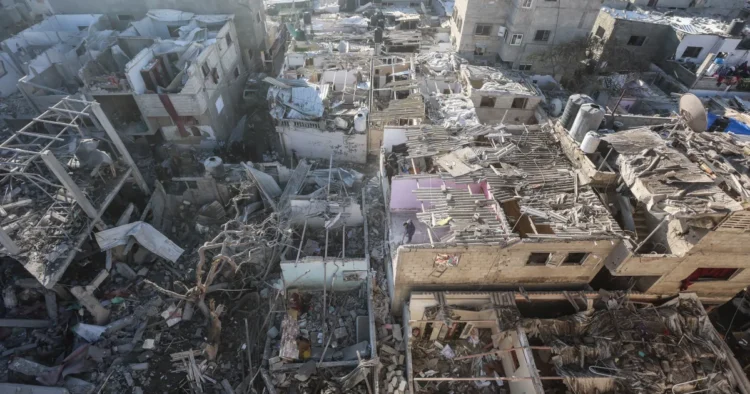The Israeli military is cautioning top government leaders that a sweeping plan to build a so-called “humanitarian city” for Gazans could severely damage hostage negotiations and take months, if not longer, to complete.
Pushed by Defense Minister Israel Katz, the initiative would relocate over 600,000 Gazans—eventually expanding to include the territory’s entire 2.3 million population—into a restricted zone built on the ruins of Rafah. Under the plan, civilians would be screened upon entry, barred from exiting, and provided with humanitarian aid by international organizations, while the Israel Defense Forces (IDF) oversee the area from a distance.
The proposal has drawn fierce criticism from across the political spectrum and international community. Former Israeli Prime Minister Ehud Olmert condemned it as a “concentration camp,” while opposition leader Yair Lapid called it “unrealistic, expensive, and politically driven.” Critics say the plan could backfire by locking Israel into a prolonged presence in Gaza and damaging its international standing.
The Palestinian Authority and UNRWA have also denounced the move, calling it inhumane and a threat to any future peace process.
Beyond its political and ethical implications, the financial toll is staggering. The estimated cost stands at 15 billion shekels ($4 billion USD) upfront, with annual maintenance projected at 10 billion shekels ($2.7 billion USD). Finance Ministry officials warn the plan could lead to higher taxes and major cuts to essential public services like education, healthcare, and welfare—already strained by war and the aftermath of the COVID-19 pandemic.
Building the city would demand infrastructure on par with a brand-new Israeli municipality—including roads, water systems, sewage networks, hospitals, and schools—all without any permanent housing.
Despite the scope and cost, the plan has only been briefly discussed in two limited cabinet meetings. It has yet to receive broader governmental review or public input.
While Defense Minister Katz and Finance Minister Bezalel Smotrich support the initiative, professional staff within the Finance Ministry are pushing back, citing major economic risks. Even with record tax revenues topping 20 billion shekels ($5.4 billion USD), the International Monetary Fund and ratings agencies expect Israel’s deficit to hit at least 6% this year.
The plan’s future remains uncertain—but its implications are already rattling decision-makers at home and raising alarms abroad.
























Discussion about this post